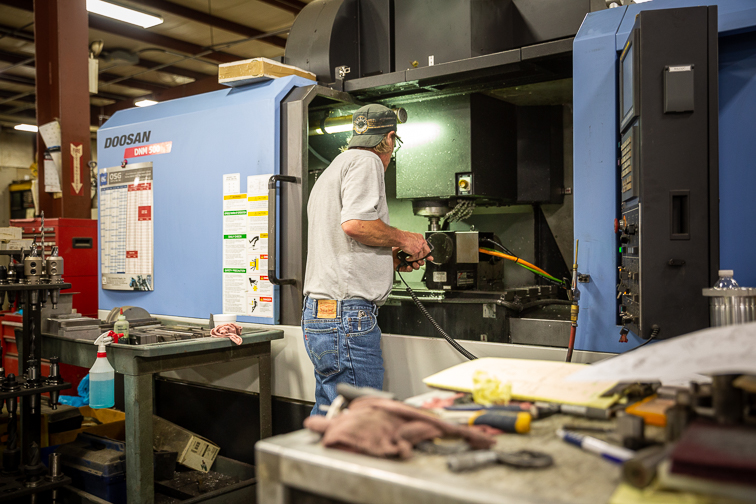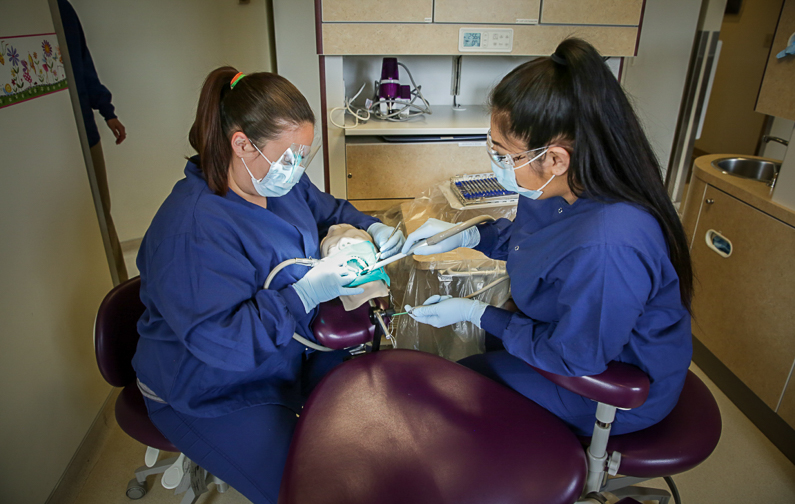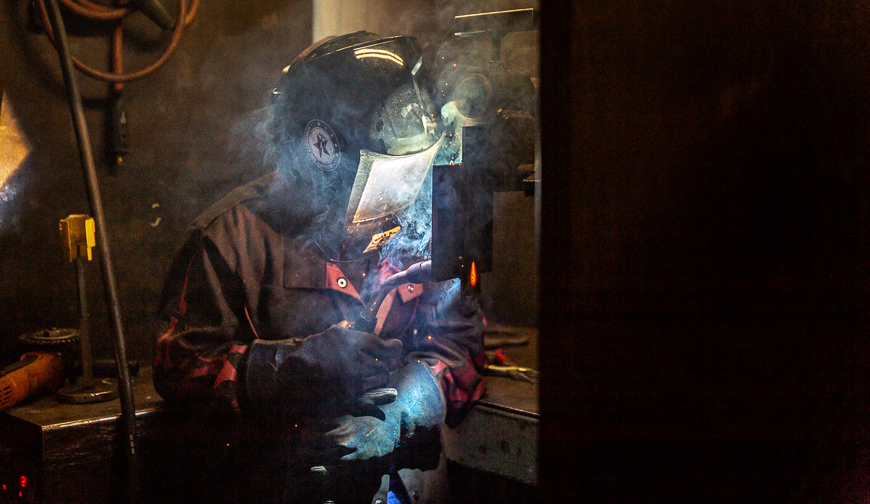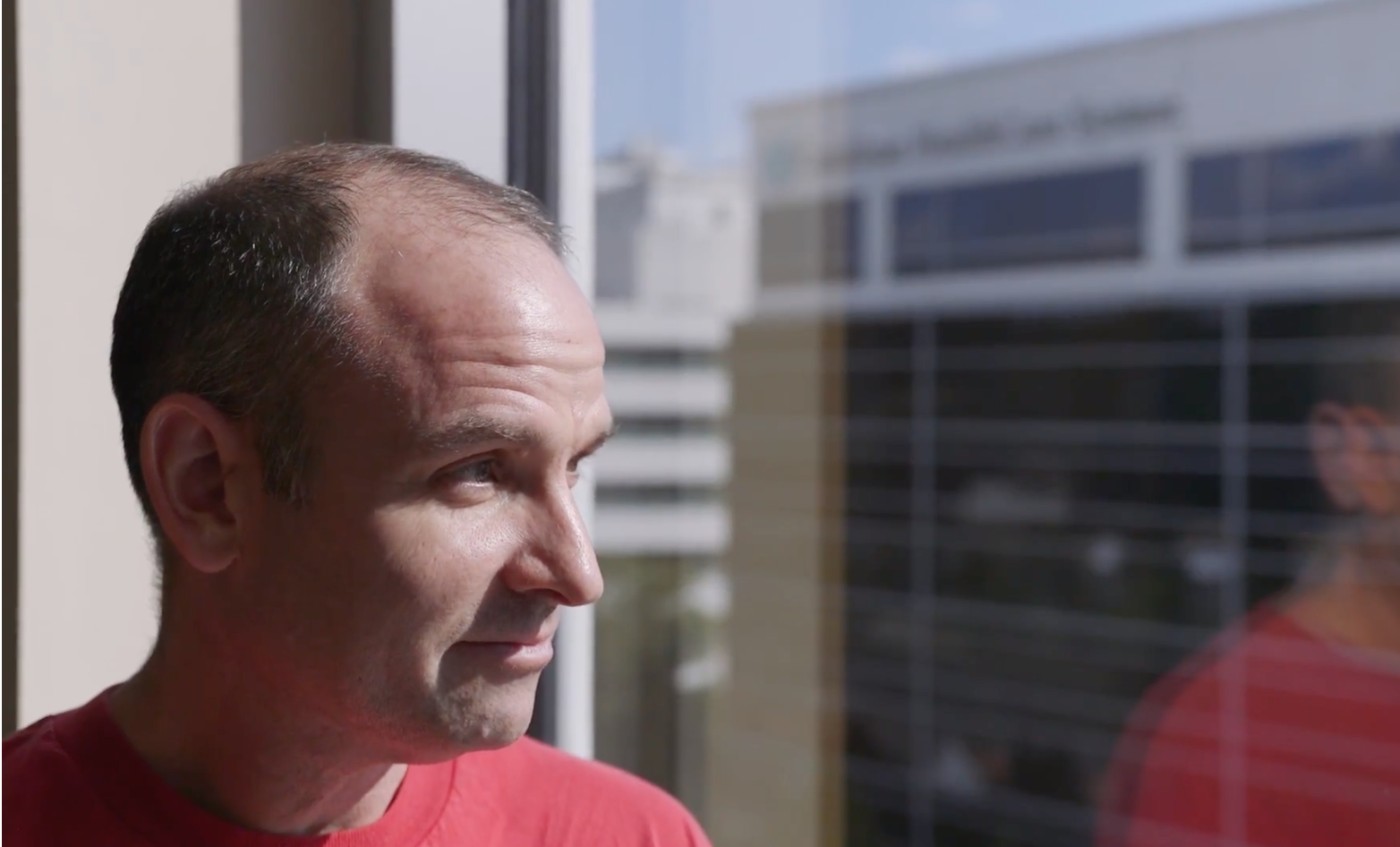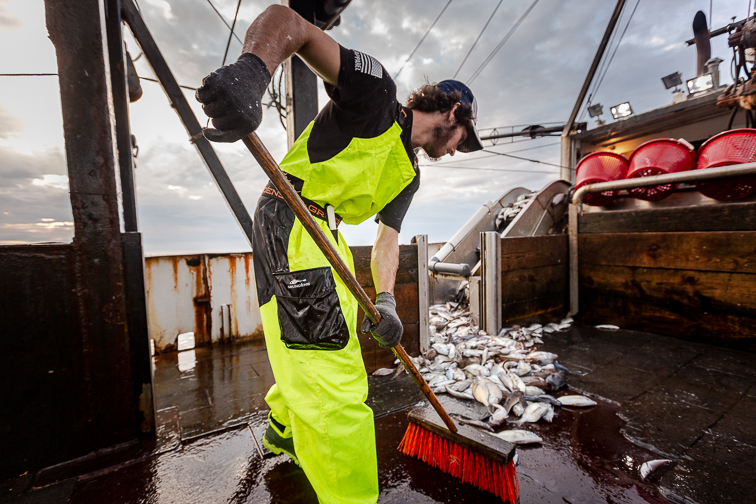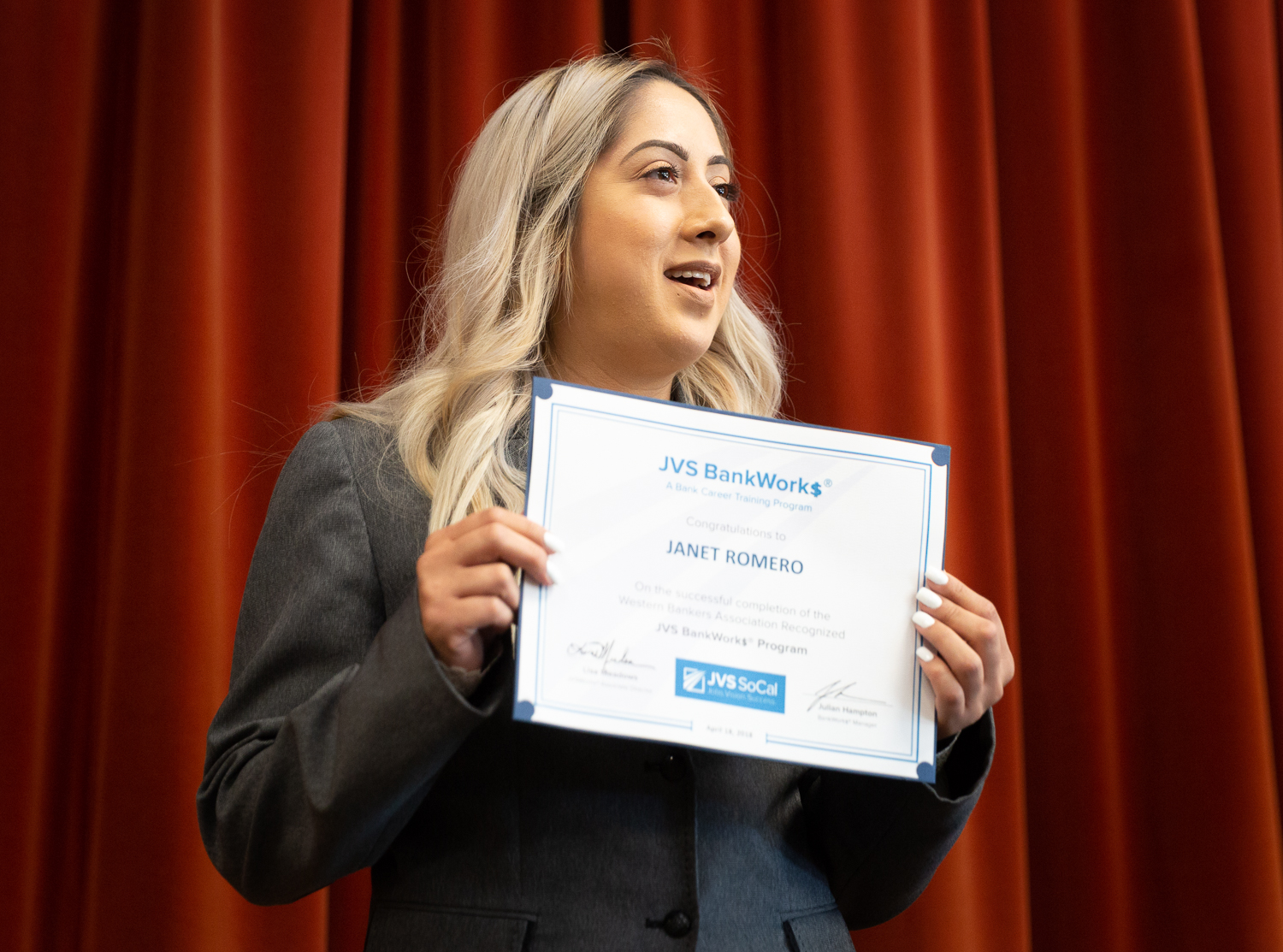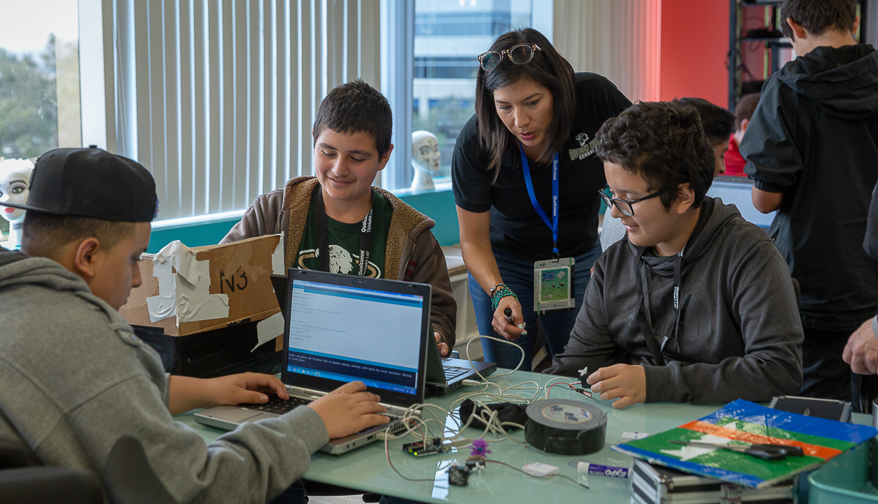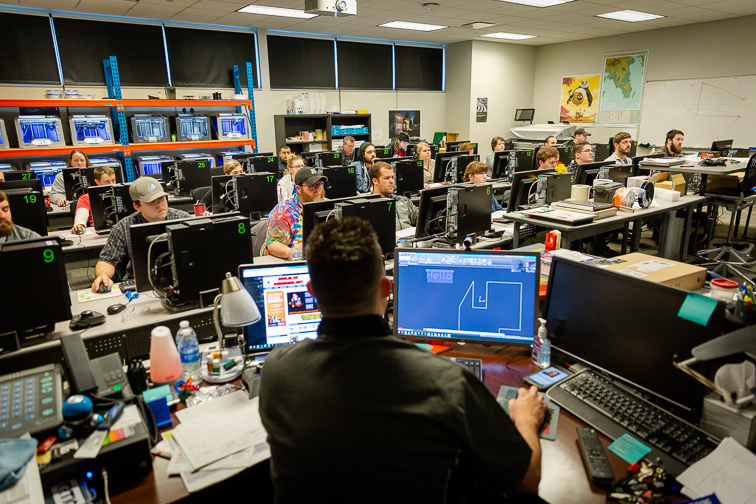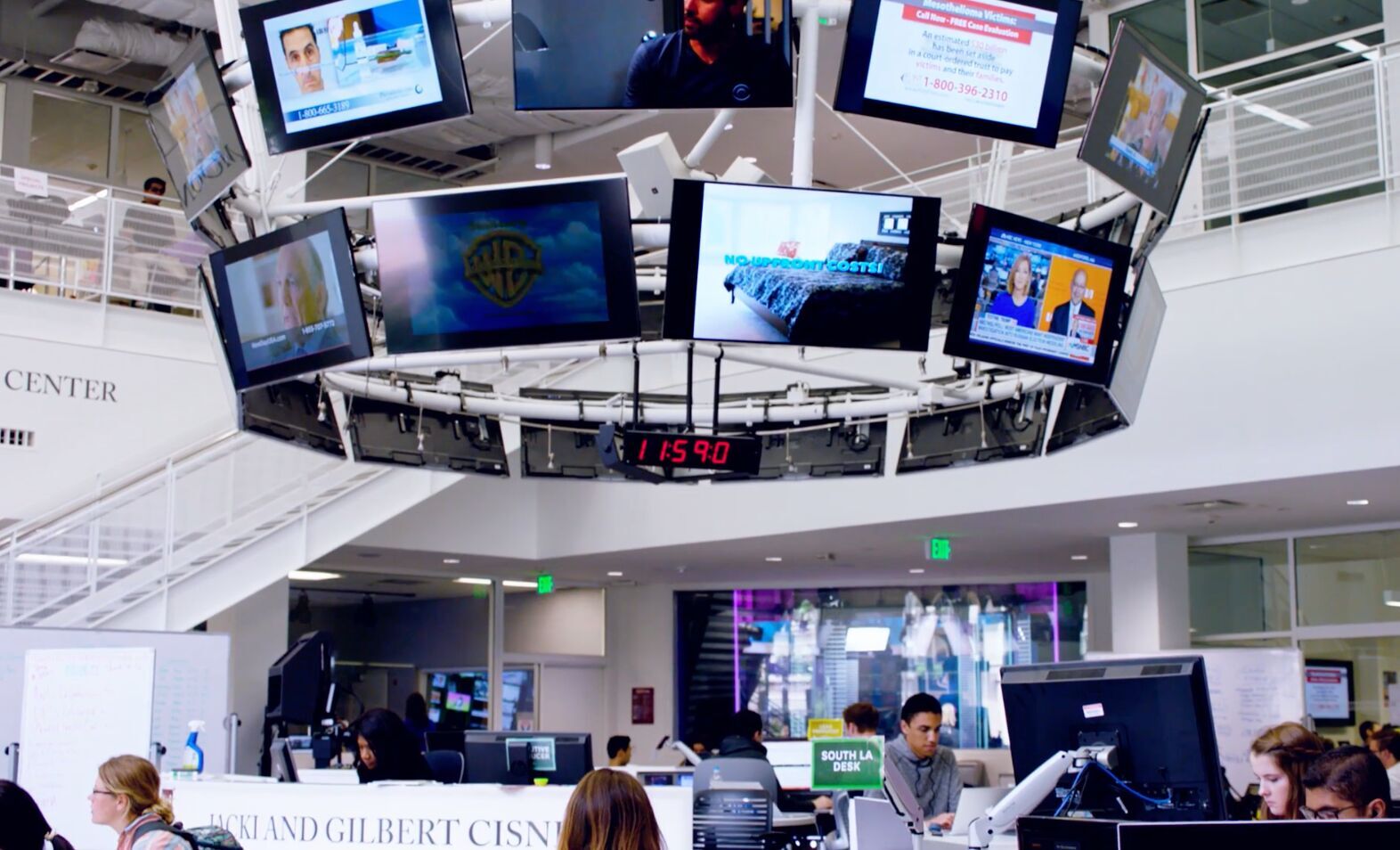When The Dow Chemical Company needs workers at its Michigan Operations plants in Midland, they don’t have to wait long to have the skilled homegrown talent to fill available job openings. They arrive just-in-time thanks to its partnership with Delta College.
Delta College’s Chemical Process Fast Start™ training program takes qualified students through an accelerated 13-week training that matches exactly what they would see in on the manufacturing floor. Fast Start programs begin and end based on needs of the employer and culminate in a job interview for graduates. Since 2008, this training model has proven its worth to keep talent at home earning solid pay and benefits.
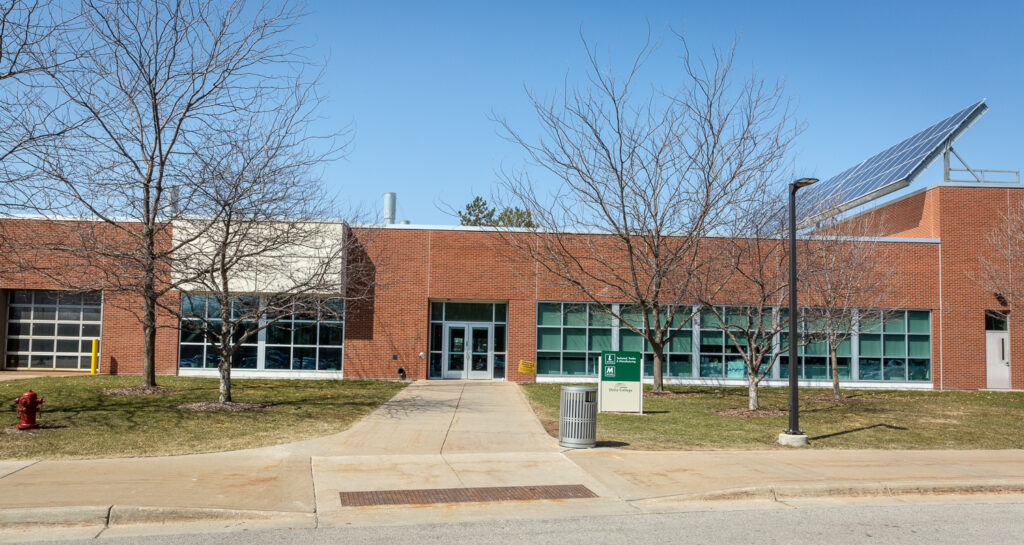
“We don’t want to export talent. No community does,” Delta College Director of Corporate Services Jennifer Carroll said to WorkingNation. The school serves the Great Lakes Bay region, which was not immune to the effects of the Great Recession. Michigan’s unemployment rate outpaced the national average and peaked in 2009 at 13.9 percent as the manufacturing sector crumbled.
“What we found in our communities that there was an excessive number of skilled individuals who were finding they were out of work, particularly in the automotive industry. At the same time, we had a major employer, Dow, who had a need for chemical process operators,” Carroll explained.
For the majority of its 121-year history, the world’s second-largest chemical company has been the largest employer in the region. Dow partnered with Great Lakes Bay Michigan Works! and Delta College as a response to the economic downturn when unemployment was high.
This three-pronged approach to workforce development was intended to help those displaced workers learn new skills. As the economy rebounded in the state, the program is still working to reverse the trend of young people abandoning the region in search of better jobs. Now the region must contend with a surplus of job openings but not enough skilled workers.
Fast Start student Trevor Engwis, 33, remembered how bad it got for the region. He grew up in Estey, about 47 miles away from Delta College and 30 miles from Dow Chemical’s headquarters in Midland. Estey’s population dwindled so much that it is considered a ghost town. Despite his family’s long history with Dow, stretching back five generations when his great-great-grandfather worked for founder Herbert Henry Dow, he did not pursue a career with the company.
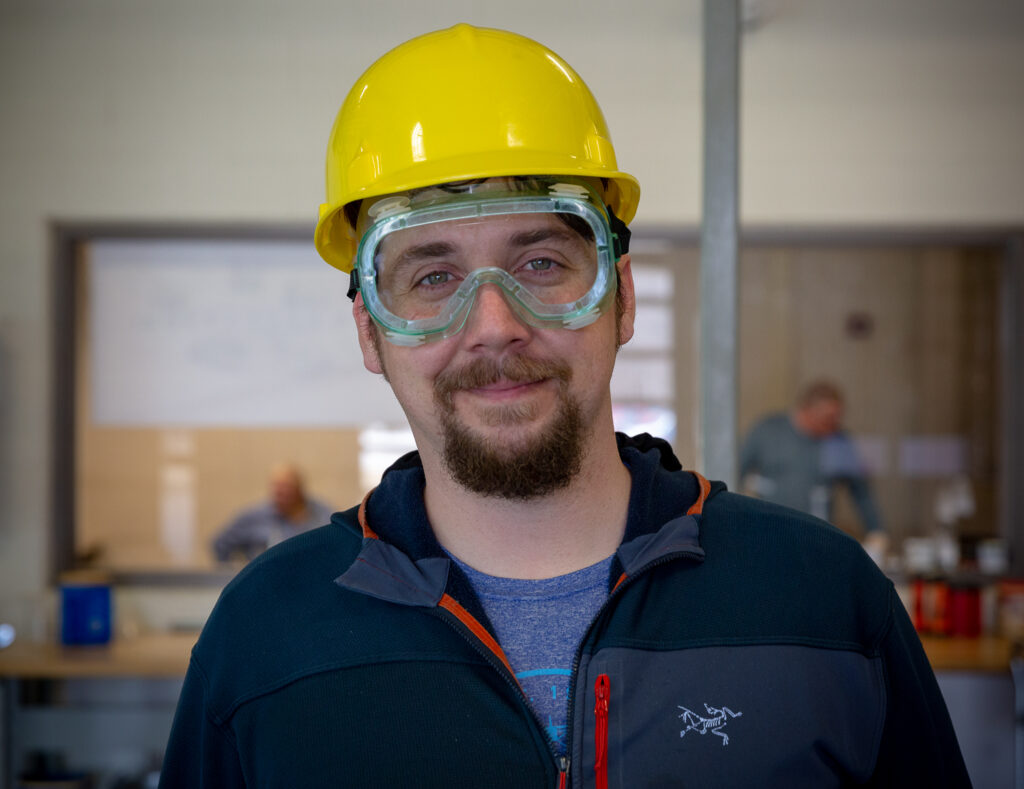
“It was a pretty depressed state to try and find any job that was paying anything,” Engwis said. He took some college courses following high school but dropped out and moved to Alaska in 2009 in search of work.
It was a formative time for him where he picked up technical skills while working various jobs in the oil field and the sightseeing industry as a flight follower. He found his future wife and started his family, but the high cost-of-living in Alaska and his brother’s successful completion of Fast Start would lead him back to his home state.
Spencer Mulder, 26, graduated from Fast Start in 2017 and had a different circumstance which led him to Dow. The Midland native grew up with a dream of working as a chemical process operator and he started down that path with Delta College to earn his associate degree. However, he abandoned his education for what he thought would be a promising career in sales for a farm equipment dealership.
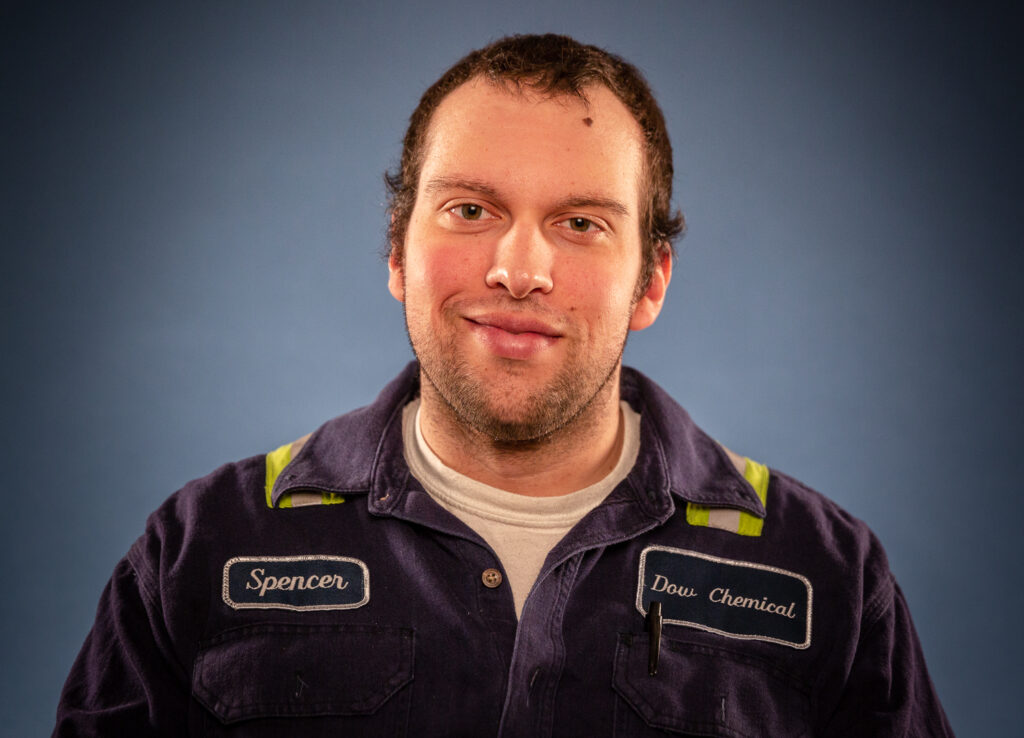
“I thought that it would be a good opportunity for me to start my own life, and then after a few years I realized it just wasn’t what I wanted to do for the rest of my life, so I had to change, or it was going to be too late,” Mulder said.
Engwis and Mulder discovered Fast Start and its success in connecting more than 350 graduates to jobs with Dow over its history. The program represented an opportunity for them to change their lives without the long-term investment of time and money in their education. They disrupted their lives in the short-term for the promise of full-time employment.
The Future of Midland
Dow’s long history with Midland and the Great Lakes Bay region means that their futures are interconnected. Dow Chemical’s Michigan Operations employs around 3,000 people working in manufacturing and research. The company’s consolidation of Dow Corning, which manufactures silicones, resulted in the announcement of a $6 million expansion of Michigan Operations’ silicones manufacturing unit in 2016. It also represented a significant reinvestment in the Midland workforce.
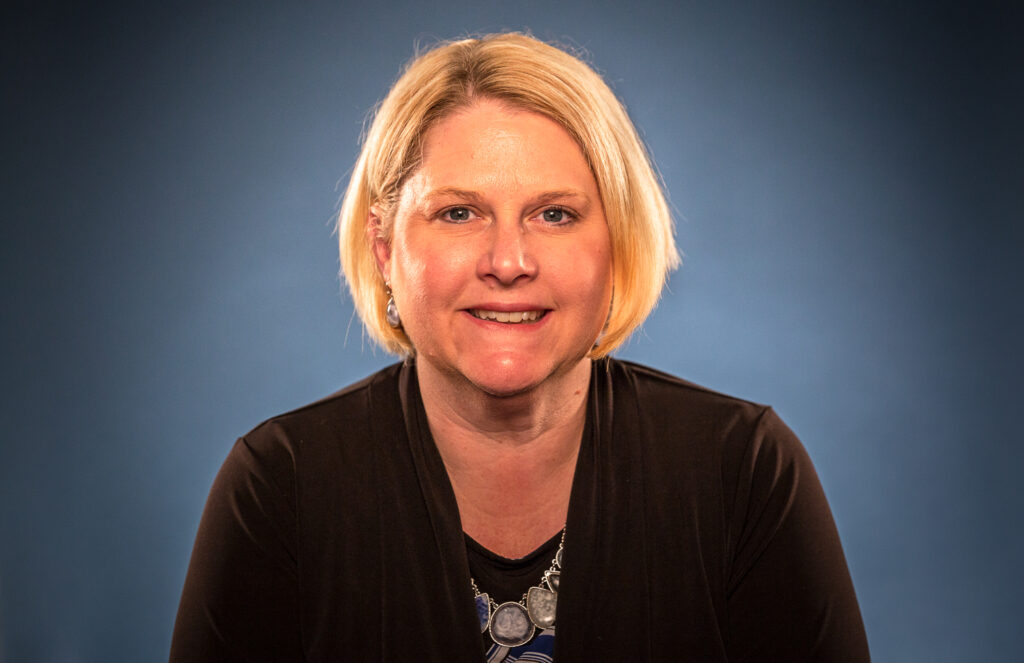
“The future of Midland is very important to all of us, and Michigan Operations is one of the largest manufacturing units within Dow Chemical. For us, always attracting top talent is a top priority,” said Lynnette Borrousch, Operations Director of Midland Silicones for Dow Chemical.
The so-called “brain drain,” or the flight of degree holders out of the state, makes it difficult for companies like Dow to source qualified workers. Around 30,000 bachelor’s degree holders have left the state since 2011. And only 28.3 percent of adults who stayed have earned a bachelor’s degree or higher. This growing skills gap is something that Fast Start’s unique training programs can solve.
The skills to work as a chemical process operator for Dow Chemical require postsecondary training beyond a high school degree. Typically, Delta College has offered a two-year degree in its academic program where students learn safety protocols and take chemistry and math courses. Fast Start shrinks that timeframe to 13 weeks.
“Over the last several years, it’s gotten tougher and tougher for us to find the right folks for the roles that we have open. As the unemployment rate continues to drop, we see much more competition for folks that want to come into manufacturing,” Borrousch said.
With the state’s unemployment rate at 4.6 percent in 2018, the competition for middle-skilled workers who require postsecondary training or upskilling is high. According to Great Lakes Bay Michigan Works! Chief Operations Officer Kristen Wenzel, the trend isn’t localized to the region. The baby boomer generation is retiring, and younger generations are not prepared to ascend to these roles.
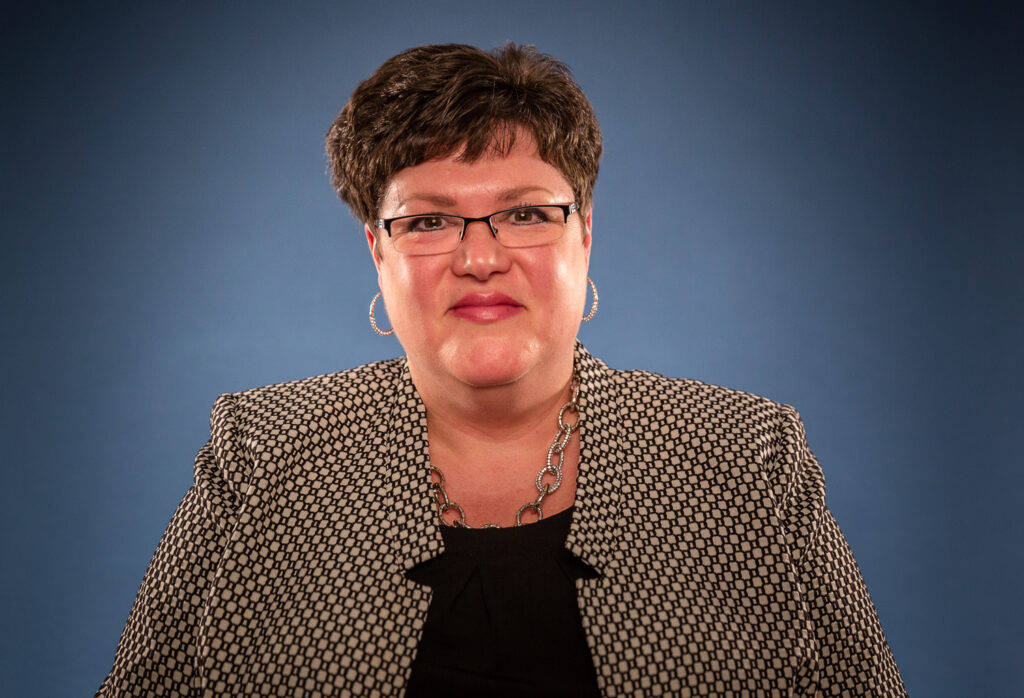
“The problem that we’re experiencing here is very similar to what we’re experiencing across the country. More people are aging out of the workforce than people are entering. The people that are available for today’s jobs aren’t necessarily trained for the types of jobs that are available right now,” Wenzel said.
Just in Time Training
The Fast Start training programs are a departure from other Career and Technical Education (CTE) programs in that they are not intended for students fresh out of high school, according to Carroll. It’s a solution for displaced workers who may be stuck in underemployment or have no opportunity for career advancement. It was created specifically for adult learners who have a minimum of two years of work experience.
Great Lakes Bay Michigan Works! has a rigorous recruitment and application process to fill the 24 open slots per class at Delta College. Since Fast Start programs begin only on employers’ need to fill job openings, it’s vital that applicants are prepared to handle the curriculum and the lab work. The tuition is $5,500, but 90 percent of participants are eligible to have these expenses covered by Michigan Works.
Fast Start programs are like a full-time job with 40 hours of coursework and instruction per week. What students are training for is essentially Delta’s two-year program in a compressed period shorter than a college semester. Successful completion of the program comes with 23 credit hours which can be applied to an associate degree in chemical process operation.
Engwis and Mulder entered the program with varying levels of technical experience, but according to Carroll, most Fast Start students have never set foot in a chemical processing plant. Following the initial classes of safety instruction, students take a field trip to the Michigan Operations facility, which opens their eyes to the possibility of a career with Dow.
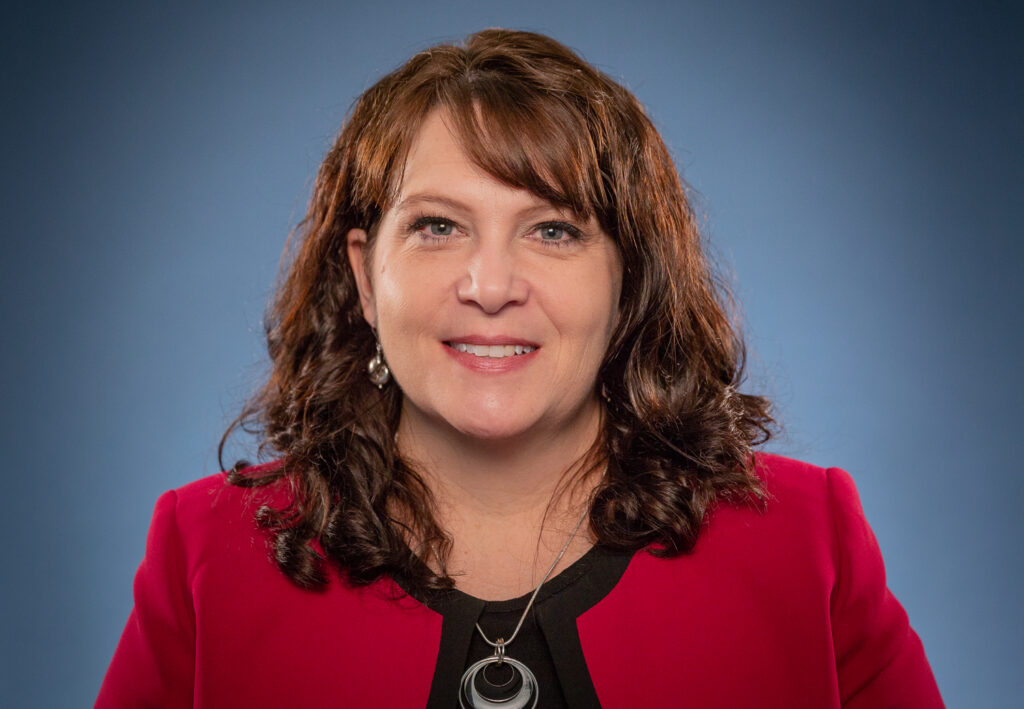
“They can look at it, and they can picture themselves there, Carroll said. “If anybody had any doubts about where they were going to work, the doubts are eliminated after they go on site.”
What students see at the Midland plant is replicated at the Delta College lab. Through its partnership, students work with the state-of-the-art equipment provided by Dow and gain the real-world training that off-the-street job seekers lack.
“Going to Dow for the first time was exciting because I got to actually see how big of an operation it is, how large the reactors are, how big the equipment is. Working in the lab, we’re working with a bunch of miniaturized pieces of equipment. Once you get there and these pieces of the operation are spanning multiple stories, you get a real respect for it,” Engwis said.
Receiving instruction from former Dow employees, who have 20 years of experience, also gives students the context they need to prepare for careers with the company if they are hired. It was an important factor for Mulder because the instructors connected the hands-on training of the lab with what he learned in the classroom.
“All the teachers that teach in the Fast Start program, are retired from Dow. It made the learning experience that much better because they could relate what they did to what we will see on the job,” said Mulder.
In addition to the courses in chemistry and math, counselors from Delta College and Michigan Works prepare students for their guaranteed interview with Dow. They offer instruction on what Dow is looking for regarding resume writing and interview skills. At the end of Fast Start, students have the technical and soft skills they need to make the transition to the workplace. According to Wenzel, Fast Start has a graduation rate of more than 90 percent, and the last two cohorts had a 100 percent placement rate.
“That’s a testament to the talent that is attracted to this program, to the training that the program helps prepare, and to the employer need in the region,” Wenzel said.
Like just-in-time manufacturing, when parts suppliers provide the necessary equipment at the moment of installation, Fast Start graduates are ready to work. It took four days after Mulder’s graduation for him to land an entry-level position as a supply chain packager. Engwis was hired during his training, and he joined his brother to continue the family’s legacy of working at Dow.
“The Fast Start program worked out as good as I could’ve imagined. I got an interview in the middle of class and got hired on the exact side of Dow that I wanted,” Engwis said. “It worked out just perfectly.”
Room to Grow
Engwis and Mulder both have their eyes set on becoming chemical process operators. First, they must work their way up through the organization. Lee Bentley, a logistics activity coordinator with Dow Chemical, said that his department is the usual starting point for a career. The workers who start out in logistics don’t stick around for long, providing an opening for Fast Start graduates like Mulder.
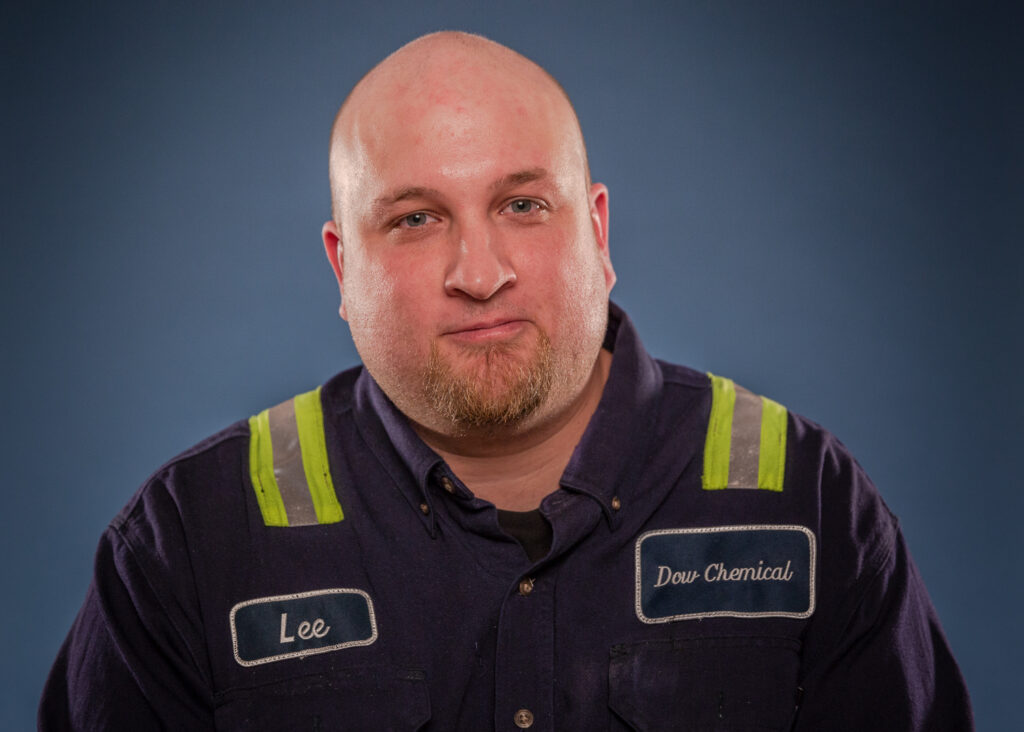
“When operator roles open those lower-level employees sign up into those higher-level roles. So, my people are constantly turning over,” said Bentley.
Bentley has a high regard for Fast Start-trained workers. While standard on-the-job training for new hires at Dow can take about four months, he said that Mulder caught on quickly and hit the ground running.
“In comparison to employees that have not been through the Fast Start program, Spencer, it was clear to me right away, had a strong knowledge of pumps and that is one thing that we deal with on a regular basis,” Bentley said.
Since Mulder’s graduation last September, he has received a promotion. The promise of career advancement with Dow was enough for him to quit his sales job and he stuck with the goal of working at Dow and sacrificed the income to get there.
“The challenge of going without a job for three months was worth it because I just looked at the end result, and I knew that if pushed through it that I would have a good stable job at the end,” Mulder said.
Engwis uprooted his young family from Alaska last November with the hopes of completing Fast Start and joining up with Dow. He sold his house and moved thousands of miles to be closer to his roots in Michigan. While his wife helped manage the family budget during his training period, he knew the short-term sacrifice would come with a great reward.
“I think my life’s going to improve a lot from going to Dow,” said Engwis. “There’s a lot of benefits, health benefits and financial benefits to getting a job there. Being able to raise my children within a fifteen-minute drive of my family is a huge perk.”




